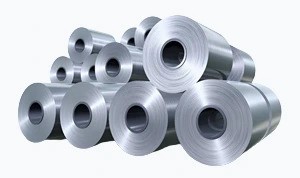Tel: 0129-4001010 Phone: +91 730 321 5033
Email: cs@absoluteveritas.com
BIS CERTIFICATION FOR COLD ROLLED STEEL STRIPS IS 2507:1975
In today's competitive landscape, maintaining market presence without a certified, high-quality product can be challenging. Obtaining a BIS license may also be essential for selling products in the Indian market. To achieve BIS certification and ensure product quality, manufacturers must adhere to the specified Indian standards.
Let's delve deeper into at IS 2507:1975 for cold-rolled steel strips for springs.
IS 1387:1967 outlines the general requirements for supplying steel strips. The steel should be manufactured using processes such as open hearth, electric furnace, duplex furnace, basic oxygen furnace, or a combination thereof. It is essential for the steel to be of the killed type.
Steel strips must adhere to one of the eleven specified grades outlined in the standard.
Strips must be free from harmful flaws such as scale, rust, blisters, laminations, cracked edges, and so on. When delivered, the surface of cold-rolled, annealed, or hardened and tempered steel strips can be dull, bright, polished, or polished and tempered. Appendix C of the standard specifies the physical properties of cold-rolled steel strips for springs. The chemical composition of the material must be as specified in the standard.
TESTS
The subsequent test must be conducted for Cold Rolled Steel Strips.
-
Freedom from defects
-
Decarburization
-
Edge condition
-
Chemical composition
-
Dimension & tolerances
-
Physical properties
PACKING AND MARKING:
Packing and marking procedures should align with IS 2507:1975. Strips must be securely packed using waterproof paper, polythene, or polythene-lined hessian and tightly fastened with hoop iron. Multiple coils can be bundled together using wooden battens or packed in wooden boxes. Alternatively, strips can be packed with individual thin metallic sheets wrapped around them and secured with hoop iron bands.
Every bundle or package containing steel strips should display the manufacturer's name or trademark, size, grade, and cast number or identification mark. Additionally, the material may feature a standard mark (ISI mark). Manufacturers are required to obtain a BIS license from the Bureau of Indian Standards to utilize the standard mark (ISI Mark). This license is granted following a comprehensive assessment of manufacturing infrastructure, production processes, and testing capabilities conducted during a visit to the manufacturing premises by the Bureau.
PROCESS FOR BIS ISI MARK CERTIFICATION

BIS CERTIFICATION PROCESS
Acquiring a BIS license requires a comprehensive review of manufacturing infrastructure, quality control abilities, testing resources, and production procedures. This thorough assessment guarantees that products not only adhere to regulations but also prioritize consumer safety and reliability.
NOTE:
For comprehensive guidance on the BIS ISI Certification process, please explore:
WHY USE ABSOLUTE VERITAS?
Absolute Veritas is a prominent organisation from the private sector of India primarily dealing with the Inspection, Testing, Audits, Certification of products& consulting services to various industries in India and worldwide, ensuring compliance with regulatory standards and industry requirements. Offering a comprehensive range of services including product certification, testing, training, auditing, and compliance services, Absolute Veritas helps manufacturers and importers achieve higher production efficiency and quality standards.
Absolute Veritas (AV) will handle end to end pre-registration request, sample preparation, documentation, testing and application process for FMCS Certification
For any questions regarding the most recent update on FMCS registration licenses, please reach out to us via email at cs@absoluteveritas.com








 ❮
❮
